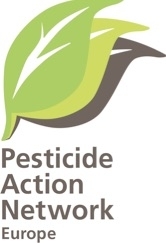Today, the European Court of Justice has confirmed that the European Commission was entitled to ban the use of neonics on bee-attractive crops in 2013, in its jugement [1] on the appeal case opposing Bayer to the European Commission. The Luxembourg-based institution backed the use of the precautionary principle and that, even in case of uncertainty, the European Commission was entitled to make such restrictions.
PAN Europe and other NGOs intervened in the case launched by Bayer against the European Commission restrictions imposed to its imidacloprid and clothianidin neonicotinoid insecticides in 2013. Bayer lost in a first judgement in 2018 and the Court of Justice of the EU confirmed today the verdict: the European Commission was right in banning uses of neonicotinoids on bee-attractive crops.
Martin Dermine, policy officer at PAN Europe said: “After 8 years of legal work in support to the European Commission’s decision, we celebrate this confirmation by the Court that the European Commission was right to restrict the use of neonicotinoids. More than that, the Court confirms the definition of the precautionary principle: in case of doubts on the toxicity of a pesticide, the European Commission is entitled to ban it”.
The European Court also confirmed that the European Commission was right in making use of the recent findings of the European Food Safety Authority (EFSA), even if it was not yet validated by EU Member States, and that any new scientific and technical information should be considered, in order to review the approval of a pesticide.
Martin Dermine to add: “The industry and several pesticide-friendly Member States keep pushing to delay decisions to restrict toxic pesticides in Europe, on the ground that new guidances are not agreed upon by EU Member States. The Court here confirms that any new scientific work may be used to ban a pesticide. This is fortunate as it can take up to 10 to 15 years for Member States to agree to tighten the rules for pesticides evaluations. This will certainly give more margin of manoeuvre to the EFSA and the European Commission to speed up the ban on the most toxic pesticides, using the most up-to-date scientific knowledge”.
Contact: PAN Europe, Martin Dermine, +32 486 32 99 92, martin [at] pan-europe.info
